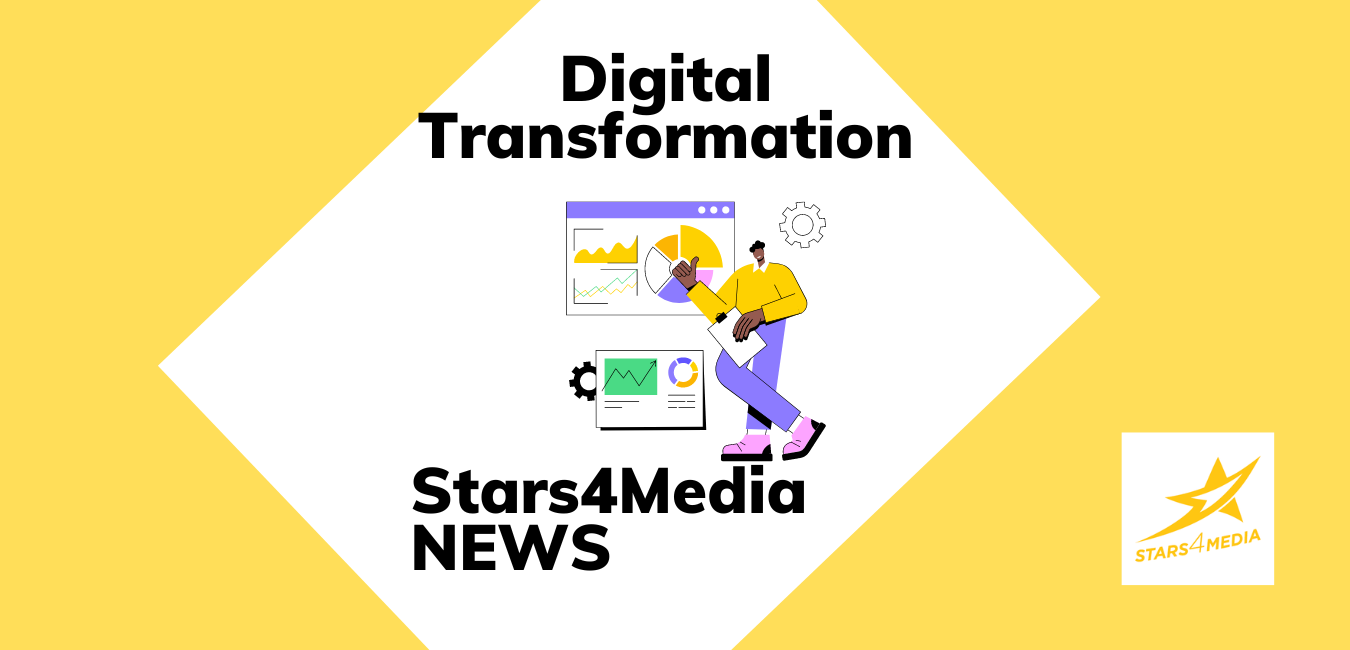As we continue the journey of discovery of the Stars4Media NEWS projects, after Revenue Diversification we focus on the Digital Transformation.
What is Digital Transformation in media? What impact does it have? How can journalists work and integrate data into their story making ? Four projects in Stars4Media NEWS have tried to provide their view on this complex matter.
For Mick ter Reehorst, founder and director of Are We Europe and Awe Studio, the answer is quite simple. ‘With our project, we wanted to explore how we could test the idea for ourselves, while also looking at how it could benefit the broader European media landscape’, says Mick. Their project with Ukraine-based Jnomics Media aims at ‘Upgrading slow journalism subscriptions: Distilled Membership – a mobile app for independent media.
‘A place where we can show and visualise how vibrant European media are, and showcase not only our own stories and channels, but also become a curated catalogue of the entire continent. Can we prototype something that is of immediate interest (and use) for media all over Europe?’, explains Mick.
‘Data Management System for Newsrooms’ is not only the scope but also the title of the project by two media companies, Spanish El Confidencial and French Voxeurop with a software development company, Datasketch . In the words of Marta Ley from El Confidencial ‘The main objective is to be able to develop a tool that is useful not only for the newsrooms of the media involved (El Confidencial and Voxeurop), but also for other newsrooms. The idea is to create a single tool that brings together different scenarios of the process of working with data, from data search to visualisation, in the most intuitive way possible’.
Laura Ortiz, Marta’s project partner from Datasketch, continues: ‘Business transformation occurs when all people are involved in the process. That starts with knowing the real needs. Our objective is to create a data tool specifically designed for newsrooms, based on a joint research and implementation work. Datasketch has the tools for the development of the solution, El Confidencial and Voxeurop know the day-to-day needs, from their different perspectives.’
For Dominik Uhlig (“Gazeta Wyborcza”) their project “Data without borders”, implemented together with “Le Soir” from Belgium, focuses on designing the way of sharing content between the two data journalism teams collaborating on joint data stories. As Dominik specifies, this approach ‘ […]fulfils the Stars4Media’s main goal of cooperation between media professionals and cross-border coverage in Europe.’
With the newsrooms using similar visualisation tools, this allowed the two companies to easily translate and exchange graphics created, creating shared stories, like the one on about the corruption in the European Parliament, among others.
The project ‘Dron Media: building Russian-language explanatory journalism network’ is delivered by the Fix Media Foundation, based in the Netherlands, and Ukrayinska Pravda. As one of the five Stars4Media NEWS projects with media from Central and Eastern Europe, it supports press innovation to sustain democracy. Project’s main goal is to create a work system that would enable individual newsrooms to benefit from cost-sharing and expertise-sharing while producing and distributing explanatory journalism content.
For Laura (Datasketch), their projects address several challenges faced by the current media situation: ‘Just to mention three. The first has to do with the increased demand for the use of data, both by journalists and readers’, explains Laura. ‘The second is related to time: newsroom data teams spend a lot of time creating simple visualisations, which takes time away from more in-depth data-driven research that provides more value to readers. The third has to do with the process of working with data itself – from data collection to visualisation, editors use multiple tools, which complicates the process and discourages many along the way.’
For Dominik, this brings another important element of their project that is ‘[…] improving the newsrooms’ skills. In order to break the silos, ‘Gazeta Wyborcza” trains journalists across different departments in Open Source Intelligence or graphic design.’
What does the future hold, at least in terms of our participants’ projects, and where do they see them supporting the wider media landscape ?
Collaboration, knowledge and skills exchange are equally important to all interviewees.
For Mick ‘Design thinking is in our DNA, so we formulated a research question for ourselves: Is there a need for and an opportunity for a curated and collectivised catalogue of European media?’. ‘We started tackling this challenge in two different ways. We now feel that we’re moving in the right direction, and we think that this new proposition we’ve moved towards can add value for the entire independent European media market’, concludes Mick.
‘When the programme ends, we aim to have a minimum viable product running in our newsrooms (El Confidencial and Voxeurop), but we hope to continue developing the tool in the future and that other newsrooms may be interested in it.’ says Marta.
Laura continues ‘The media need simple solutions to big problems. We hope that the implementation of this tool – even a minimum viable product at its first stage – will save time for editors and help them produce more valuable information, as they will be able to dedicate more time to in-depth analysis and create more visualisations, which they cannot do now due to complexity and lack of resources.’ Discover more about their Stars4Media journey in this article by El Confidencial.
Along the same lines, Dominik highlights ‘In the future we would like to share our experiences with other European newspapers, creating channels for efficient sharing of data and visual stories. We hope it will help our newsrooms to provide quality content for European readers.’
Make sure to stay tuned with the latest news about our projects by following us on Instagram, Twitter and – why not – join our LinkedIn Community?

